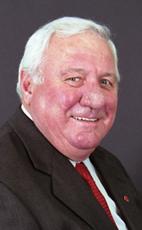Mr. Speaker, there has been so much misinformation delivered to this Chamber on the subject of MMT that it is very hard to know where to start to answer it. I will make some comments in response to the member for Chicoutimi by starting at the bottom and working up to the earlier comments.
The member said that the government should be soliciting the opinion of the provinces before it proceeds with a bill of this kind. I remind the hon. member that the opinion and the co-operation of the provinces are absolutely essential for any kind of ethanol production in any province of this country.
In Ontario when the government brought in the ethanol biomass bill, it was essential that the province of Ontario participate in that project, which it did. When ethanol comes to Quebec, which it will do-and I wonder what position my friends from the Bloc will take when a huge industrial complex is built in Quebec-it will require the co-operation and the opinion of the province of Quebec, just like any other part of the country. The opinion of the provinces is not only desirable, it is absolutely essential.
The hon. member for Chicoutimi talked about Ontario factories producing ethanol. We should set the record straight on that one too. There is one factory producing ethanol in Ontario and it produces about half of the ethanol that is produced across Canada at the present time. Much of that ethanol is used for cosmetic, medical and industrial purposes. Only a very small percentage of it goes into motor fuel, even though the demand for ethanol blended gasoline is growing quite quickly. As a result, there is a deficit. We are actually importing the ethanol blend in order to satisfy the demand.
The two new plants that are going up in Ontario, a 66 million litres a year plant in Cornwall and a 150 million litres a year plant in Chatham, will multiply the amount of ethanol produced many, many times. It will only begin to satisfy the demand. The hon. member suggested that somehow Ontario was gaining some undue advantage here and that is not so.
With regard to the health aspect of manganese, the health ministry has declined to approve or to call manganese a noxious material of one sort or another. It does not matter whether the health ministry does or does not, what matters is that the use of the alternative, that is, oxygenates of one sort or another in gasoline, will dramatically lower the emissions of carbon monoxide. It is not a matter of whether or not manganese is noxious; what matters is if it can be replaced with something that will reduce the greenhouse gas emissions from the internal combustion engine, then it is a radical step forward.
This government set out with a goal and a commitment of reducing greenhouse gas emissions by 2004 by 20 per cent from 1988 levels. The inclusion of 10 per cent ethanol in gasoline reduces carbon monoxide by 30 per cent. It exceeds the target for that particular emission. I do not have the figures on what percentage of greenhouse gas emissions are caused by the internal combustion engine but it is significant.
Some misinformation has been put forward to this House on what has happened in the United States and what the American experience has been. To set the record straight, nearly 20 years ago the Environmental Protection Agency outlawed the use of MMT in unleaded gasoline in the United States. A year or so ago the supreme court in the United States ruled that the Environmental Protection Agency had exceeded its mandate. The word came back to us that the United States was ready to embrace MMT generally across the board. It has not happened.
If we talk to the refiners in the United States they will tell us they are no longer interested in using MMT even though they have the authority now to go ahead and put it to environmental tests. A number of states have outlawed the use of MMT. If we are talking about harmonizing motor fuel between Canada and the United States, the harmony will only come when MMT is no longer in Canadian gasolines.
A statement was made about nitrous oxide emissions, NOx as it is called, that taking MMT out could cause an increase of up to 20 per cent of nitrous oxide emissions. The question one has to ask is, how much is in there to begin with? The fact is motor fuel produces very little nitrous oxide. Even a 20 per cent increase, which has been debatable depending on whose statistics are used, but let us say it is 20 per cent, if it is 20 per cent of nearly nothing, it is still nearly nothing.
My hon. friend from Chicoutimi also talked about who it is who supports the removal of MMT. There are about 2.3 million members of the Canadian Automobile Association across Canada and the CAA has declared its support for the elimination of MMT in gasoline. Yes, the auto manufacturers certainly support the elimination of MMT. They came to the committee that I have the honour to sit on and delivered the evidence right there as to what an oxide of manganese does to the emission control systems in internal combustion engines.
There are new emission control systems now. We have to contend with the effects on these new control systems. If we do not get rid of MMT, then there is no point going ahead with these very sophisticated, very much improved emission control systems.
In conclusion, what we are dealing with here, the lobby to keep MMT, is simply addressing the last vestiges of kicks from a dinosaur whose day came and now has gone.

